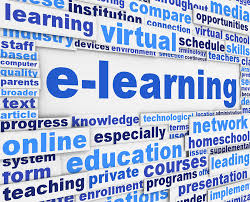Educational publishing jobs: the future is developing customisable e-learning content and platforms
 For educators, students, parents, and politicians the shift to online learning presents an opportunity to improve achievement, reduce costs, and deliver tailored learning experiences. For educational publishers, this change is as much a headache as an opportunity.
For educators, students, parents, and politicians the shift to online learning presents an opportunity to improve achievement, reduce costs, and deliver tailored learning experiences. For educational publishers, this change is as much a headache as an opportunity.
Educational publishing is undergoing profound upheaval, and for some traditional firms managing the shift to a digitised world is proving tricky.
Publishers are often guilty of focusing too closely on how customers engage with their existing offering rather than asking themselves the fundamental question: what do my customers really need?
So, what do they need?
The answer, unfortunately, isn’t as clear as the question. No one really knows and a period of trial and error in the industry is somewhat inevitable.
The temptation might be to simply digitise textbooks, but this wouldn’t make the most of the opportunity. Publishers should instead focus their efforts on helping teachers to teach by improving the delivery and assessment of content. How so? Well, how about viewing each pupil as an individual who needs customisable learning products?
In vague terms, that means producing content that offers students real-time interaction while simultaneously providing educators a quantitative assessment of their work and the flexibility to adapt individual learning programmes on the go.
That’s much easier to say than to do.
In this uncertain time of trial and error, it’s essential that students and educators are incorporated into the content development process as early as possible, this will ensure the tools and services of tomorrow really meet their needs. But perhaps more so, publishers need to ensure the right kind of skills exist in their own workforces. That means hiring people with technical fluency and customer delivery experience. These might even be people who have not previously had educational publishing jobs, but a media role elsewhere.
It’s a fairly bleak picture of the state of educational publishing I’ve painted, but that’s not to say there aren’t great new tools being developed out there.
The point I want to stress is that we’re only at the start of the journey. Already we have Massive Open Online Courses (MOOCs), online academies, and the some initial gamification of learning, but we need more great ventures like these – and what they may look like, and who’s leading the race in developing the next generation of educational tools, is what I’ll look at in my next blog post.